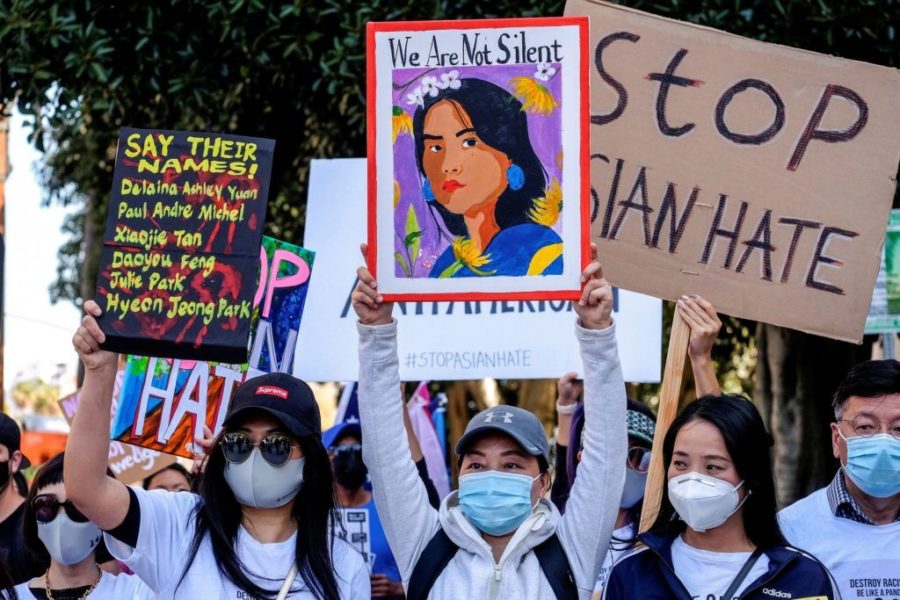Lisa Son discusses Asian American activism and racism
April 22, 2021
During the Chinese Faculty Staff Association’s event, Lisa Son, a professor of psychology at Columbia University, discussed the cost of activism for Asian Americans.
“There is a really serious problem facing Americans today, and we know what it is. It’s racism,” Son said.
Son, a cognitive psychologist, went on to outline that once people understand the meaning of the words “individual” and “activism,” then everyone, from any culture, can collectively work toward combating racism in America.
According to Merriam-Webster, the definition of an individual is “a single human being as contrasted with a social group or institution,” and Son said that pairs directly with an individual’s metacognition.
“[Metacognition] is the ability to self-reflect, to think about our own thoughts, our own feelings and our own memories,” Son said. “Another way that psychologists have described this topic is to call it ‘privileged access.’”
Son continued to explain that because metacognition includes only one individual and their thoughts and feelings, that individual is the only one with privilege to that information. According to Son, not having privilege to all information about everybody is the root of racist stereotypes.
“Something happens very naturally: a group label is formed, and when a group label is formed, all the individuals that we place in that group are given the same characteristics. This is known as stereotyping,” Son said.
Son said while it is natural to make an assumption about someone you only know a little about, making these assumptions can be extremely negative.
“Unfortunately, the thing about stereotyping is it’s the precursor to racism,” Son said. “Racism occurs … when we’re either too stressed to get to know the individual or when we’re just simply lazy.”
Son went on to say that while many people may think Asian American stereotypes, such as “all Asians are quiet” and “all Asians have dark hair,” are harmless, these stereotypes and their consequences are distinctly negative and oppressing.
“Once you think you know all about a person, there’s no more reason to continue having a conversation with that person,” Son said.
According to Son, Asian Americans are especially vulnerable for their actions to be placed into many stereotypical groups. And by speaking up, minoritized groups risk fulfilling these stereotypes.
As an example, Son said if an Asian American student gets an answer right in class, they might be viewed as having only gotten the answer right because “they were Asian.” Son gave another example by stating if an Asian American misses a ball in a game, they missed it because “Asians are nerds.” Therefore, an Asian student may never raise their hand again or play baseball.
“[With] expression, there’s a cost, and sometimes it costs the individual,” Son said.
Son then moved onto the topic of activism and how the most effective forms of activism are collective with other people. Son said as an Asian American, she frequently struggles with finding a collective “group” she can identify with.
“I have studied metacognition for all these years, and I’ve kind of gotten away from this idea that we need group support. We need collective action in these times,” Son said.
Son said this struggle is due to the difference between metacognition and activism: expression. Son said while metacognition is purely internal and private reflection, activism is an outward form of expression.
“This discrepancy between a private and a public voice is not trivial,” Son said. “There are risks involved when we get to a public voice.”
Son continued to say there is a difference in value between the benefits and the costs of speaking up for every individual. For example, Son asked, is speaking up worth the risk of possibly being attacked? Is voicing your opinion worth the risk of experiencing racism and furthering Asian stereotypes?
“My proposal is to shift the activism plan,” Son said. She said baby steps in activism need to be accepted. For example, Son said to ask Asian Americans questions and to reach out to them but to not pressure them to outwardly express their thoughts and feelings.
“Just as individuals will not be the same, activism that comes out of us cannot look the same,” Son said. “… Like when I could not voice out loud [at a protest], but I could walk silently.”







